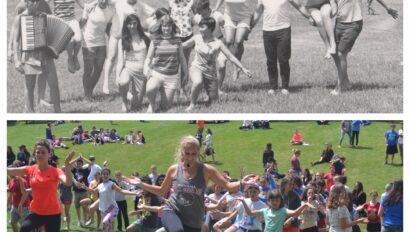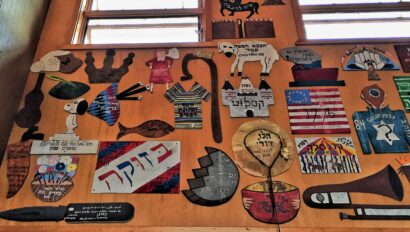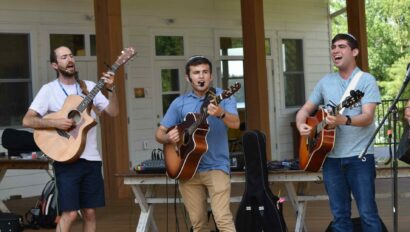
Growth Beyond the Kikar
by Liat Wasserman
Following the 2021 camp season, less than 10 days after I packed up my things from Lakeside staff housing and drove back to Chicago, I moved to downtown Haifa to begin a yearlong fellowship teaching English in the Israeli public school system. Throughout the summer, the Israelis working on my tzevet (staff) warned me that the job would be a challenge, pointing to their own experience as students and recalling all the ways they used to prank their teachers. As we sat on the kikar, one of them said to me, “the kids are different there, trust me. Nothing like campers here.” Between the very quick transition time and this impending sense that I’d be totally out of my element, I was filled with worry about the upcoming school year.
It’s true that I would be encountering a very new environment. I elected to teach in an Arab public school in Wadi Nisnas where I was the only Jewish teacher, and classes were taught for the most part in Arabic. There were indications early on that, in fact, things would be very different here, including the revelation that, unlike my American Ramah campers, my students had zero interest in playing Just Dance, the video game that is exceptionally popular at camp. When Just Dance totally bombed on one of my first days in the classroom, I asked myself, “if these 12-year-olds don’t like Just Dance what do they like?!?”
Still, after the first few awkward weeks, I started to understand that aside from the apparent cultural differences at play, my new students were similar to my campers. Sure, my American campers didn’t eat manakish for lunch every day. However, at a core level, my students were teenagers with the same questions and quirks as my campers, and they were filled with the same silliness and lovability. The anxiety I felt to fill this educational space in a meaningful way started to dissipate as I saw how my experience working as a madrichah (counselor) and rosh eidah (division head) at Ramah had given me a lot of the tools I needed to relate to kids beyond the kikar.
Tz’micha (growth) is one of the essential parts of not only the camper experience, but the tzevet experience working at Camp Ramah in Wisconsin. So, while I have found myself navigating the unknown at many points of this fellowship, I’ve found comfort in the fact that my background as a Ramahnik has not only shaped who I am as an educator but prepared me to grow as I face these challenges. In essence, our responsibility as tzevet members is to meet campers where they’re at; my responsibility as an English teacher in the Wadi was no different.
The Nivonim program is filled with chances to develop new skills while becoming more confident as leaders and friends to one another. As Rosh Nivonim I’m looking forward to all the opportunities we’ll have to promote growth for both campers and staff alike.
Liat is a recent graduate of George Washington University where she received her BA in international affairs with minors in Arabic and Hebrew languages and cultures as well as journalism. She spent the past year teaching English in Haifa as part of a fellowship through the Israeli Ministry of Education. This will be Liat’s 12th summer at camp and second summer as a rosh eidah.






